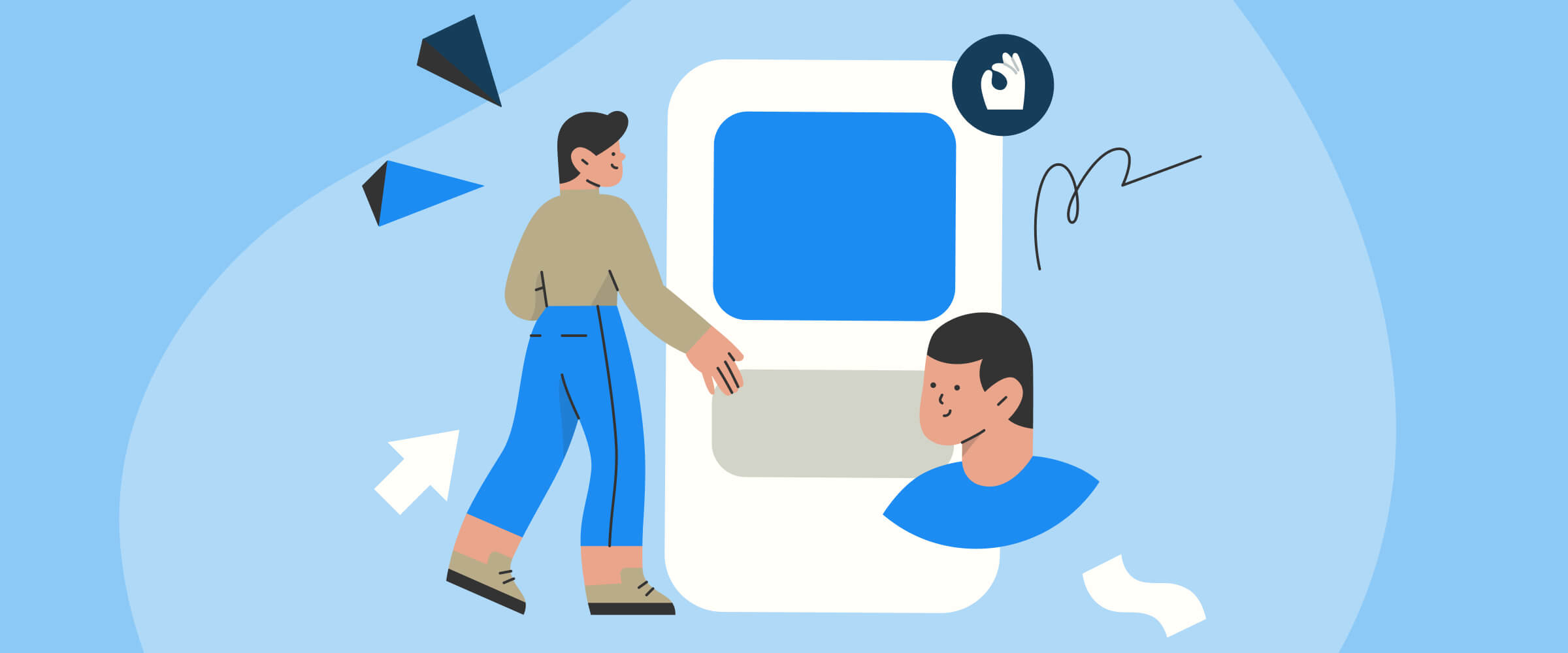This article is a review by a user of Intellect.
I’ve always believed in therapy, but the time and cost it calls for meant I never saw my therapist again after “graduating” from our previous sessions. That doesn’t mean I don’t miss her every time life’s stressors visit again. So, when I learnt that Intellect’s self-guided intervention reduced anxiety levels by 45% for those who spent five minutes on the app every day for two weeks, I had to give it a go.
The feature in question is the app’s Learning Paths – a series of self-guided content and skill-building programs guided by the principles of Cognitive Behavioural Therapy (CBT). But, first, I had to download Intellect and search for “Anxiety & Worry” on the app.
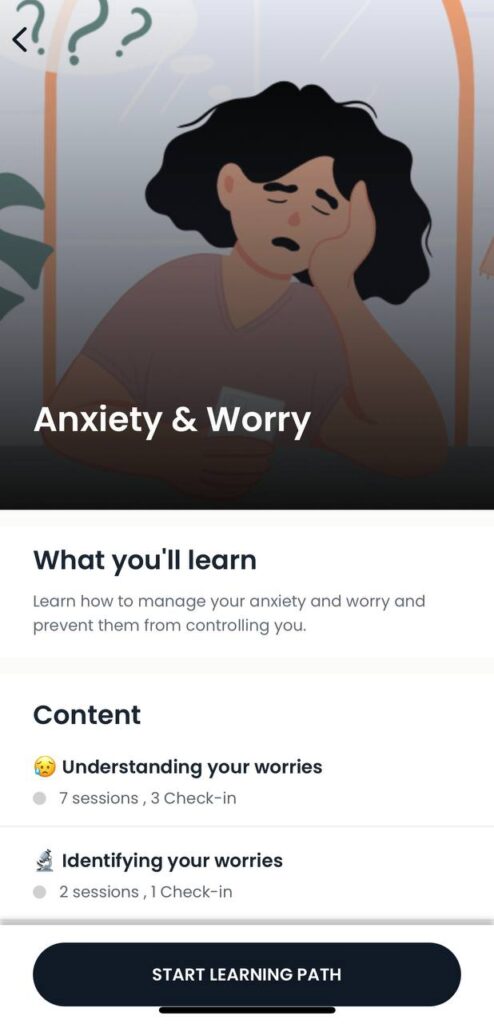
The top result brought me to the Anxiety & Worry Learning Path. The page gives a brief overview of the content, and said users will learn “how to manage your anxiety and worry and prevent them from controlling you” in four stages:
- Understanding your worries
- Identifying your worries
- Working through your anxiety
- Learning to manage anxiety
Each session took less than ten minutes to complete. A much better way to pass time on a commute than doom scrolling, if you ask me. Granted, it’s possible to speed through the Learning Path in an hour. But taking it one step at a time allowed me to apply newly acquired knowledge from the last session and reflect on my progress in an upcoming one.
This process unfolded through a mix of content formats: assessments, audio recordings, journaling prompts, and actionable takeaways. Below is an overview of how each one looks and feels.
Assessment
There was an assessment at the start and end of the Learning Path to determine my level of anxiety before and after the eight-day period. It consisted of questions like:
- How often have you been feeling anxious, nervous or on edge?
- How often have you been feeling so restless that it’s hard to sit still?
- How often have you been easily annoyed or irritable?
- How often have you been feeling afraid, as if something bad might happen?
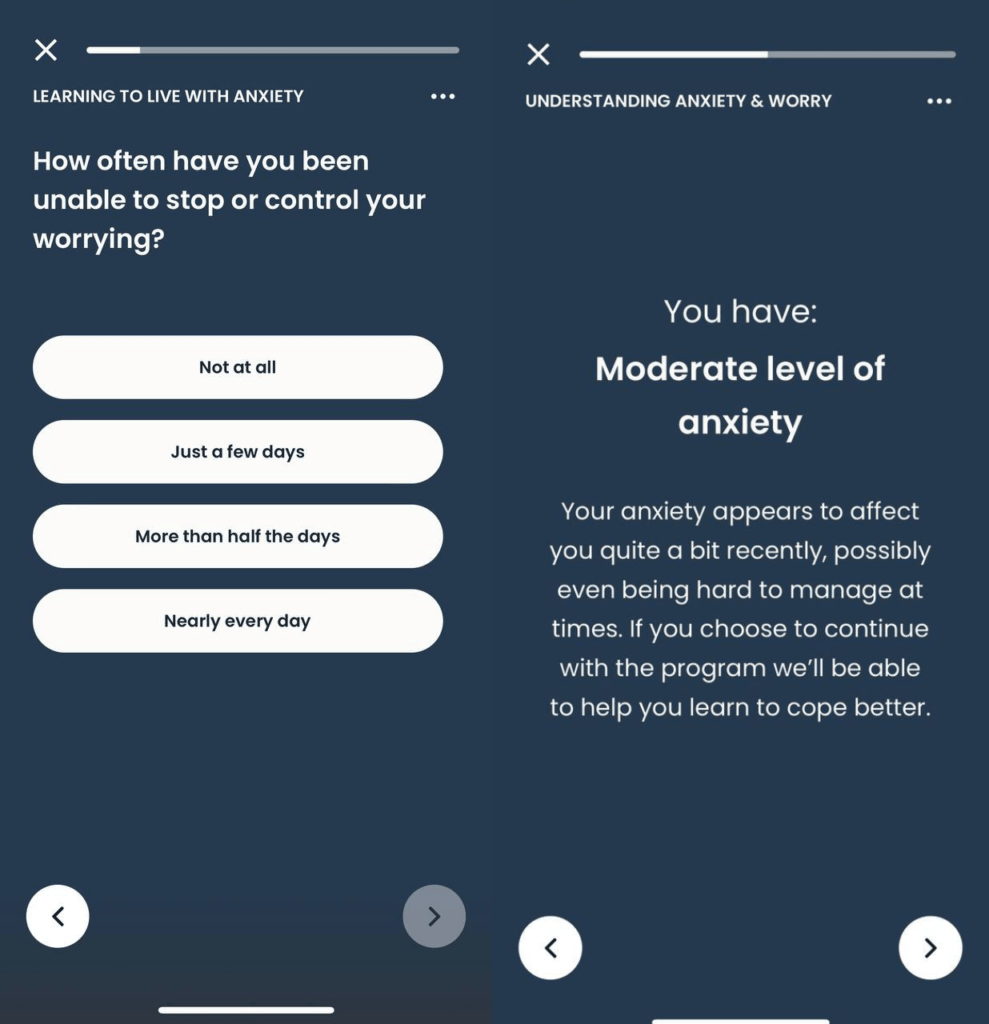
More than a means of comparison, it was an exercise of self-awareness. Some of us may feel anxious from time to time but until symptoms snowball and bubble to the surface, we don’t usually take stock of their intensity and frequency. These simple but directed questions helped me to stay mindful of my feelings, and look back on situations that unfolded recently with curiosity.
My result on day one: Moderate Anxiety.
Audio Recordings
Each session begins with an audio recording that lasts for one to two minutes. There’s a text mode which provides a transcript that makes it easy to follow even without earphones on hand, as well as a summary I keep a screenshot of as a reminder.
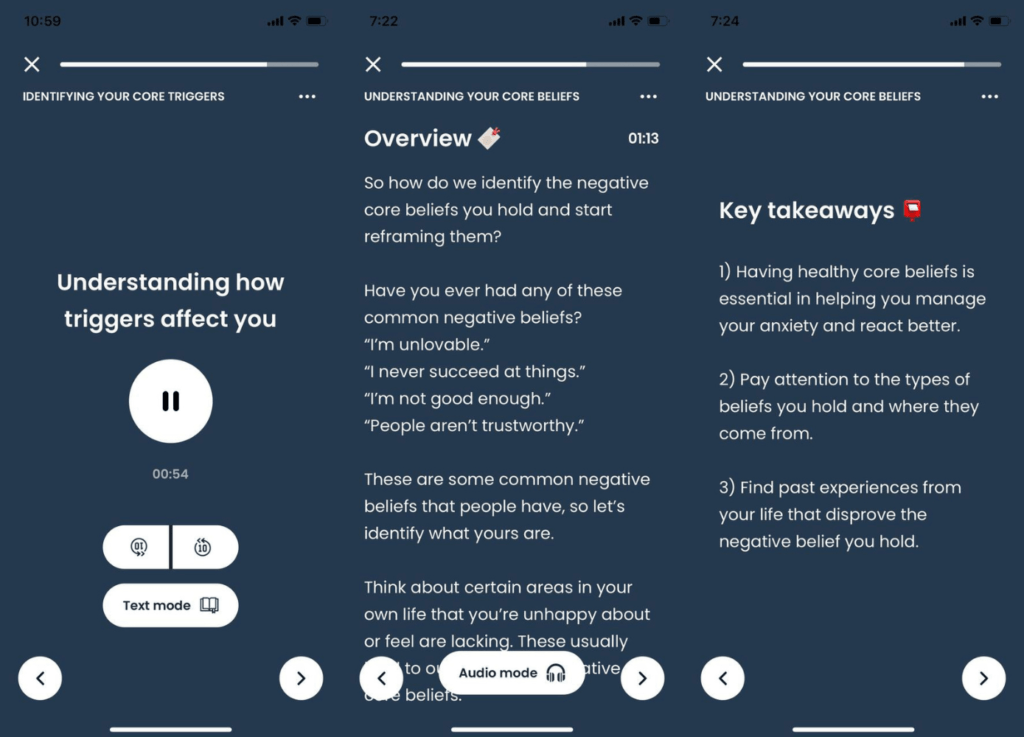
After identifying my common areas of worry and placing them in categories (relationships, family and loved ones, finance, work, goals, and health), one such recording introduced me to the concept of core beliefs. It also painted a scenario on how a positive and negative core belief can manifest.
“Let’s say you had met someone new and were thinking about asking them out for coffee.
A negative core belief about your self-worth might lead you to think, ‘I’m so boring. Why would anyone want to talk to me?’ and consequently not ask them out.
However, if you had a positive core belief around your self-worth, you might think: ‘We could have fun if we went out together,’ and end up making a new friend.”
By listing common negative core beliefs, like “I’m not good enough” or “People aren’t trustworthy”, the soothing voice compelled me to identify my own. This session, in particular, helped me trace my common areas of worries to negative core beliefs from childhood.
Journaling prompts
Now, the journaling prompts have got to be my favourite part of the Learning Path. These are especially helpful for individuals who want to reap the mental health benefits of journaling, but aren’t sure how to make it a habit. These appeared in sessions and check-ins, helping me to reflect rather than ruminate.
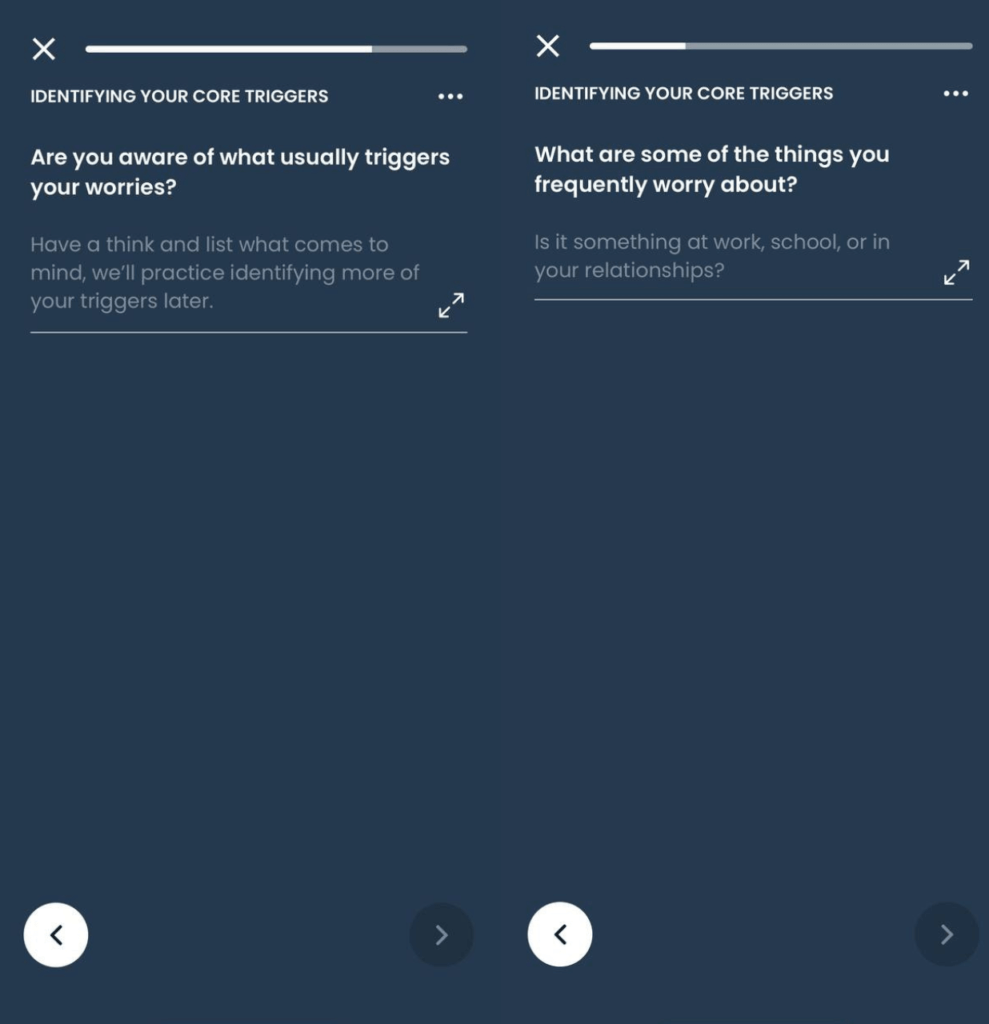
Here are some examples of journaling prompts:
- What was something you worried about today? Think about something that might have caused you unease today, either at work, school or home.
- Are you aware of what triggered this worry today? Go deeper to identify what it is about this issue that triggers your anxiety.
- What is one single thing you can try doing to improve the situation? Think about what you can do or let go of that might help resolve the worry.
The questions seemed straightforward, but they served as signposts that directed my train of thought. Translating my feelings of anxiety and worry into text was also cathartic, and I found myself feeling lighter after answering all the questions.
Actionable steps
Here comes the most helpful aspect of the Learning Path: actionable takeaways. Or, what I think of as “homework”.
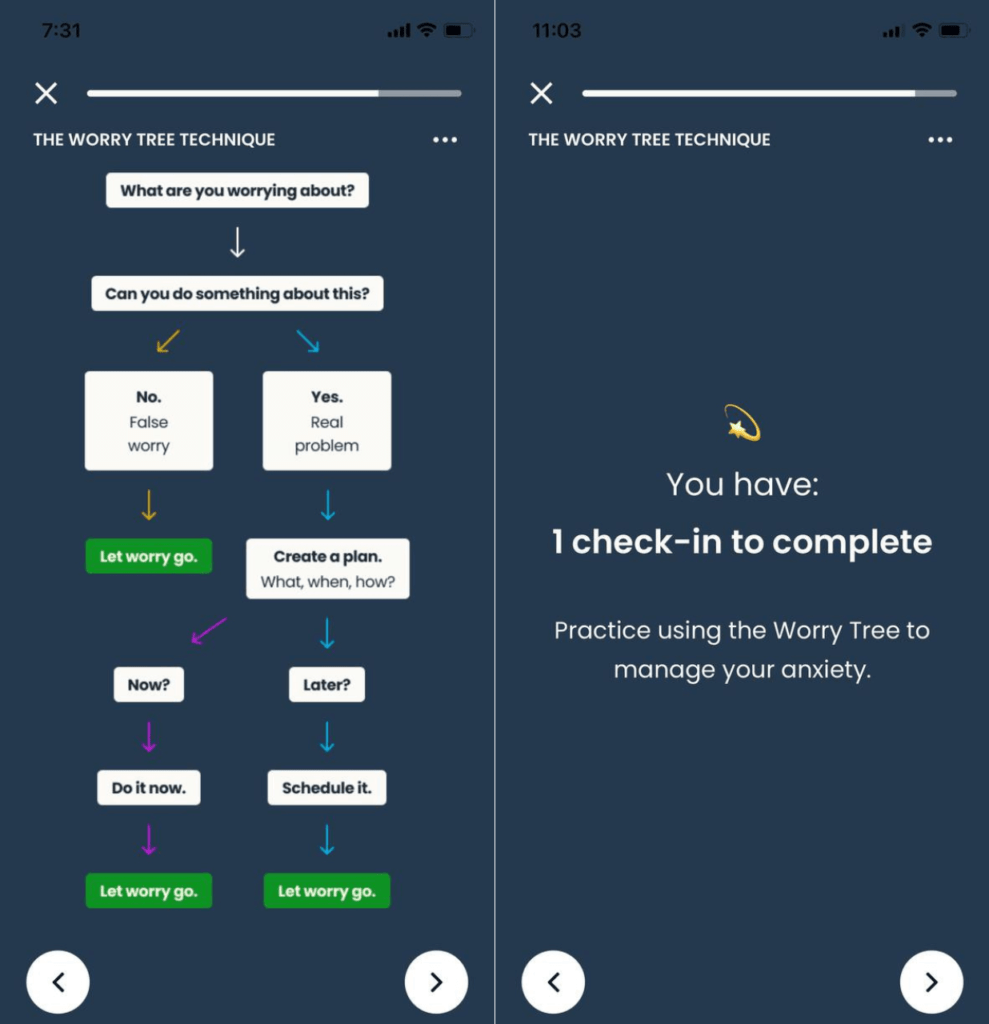
These usually come after a session where a coping tool has been introduced. For example, after learning about the Worry Tree, a mental exercise that discerns between real and hypothetical worries, I calmed myself down by applying it in an anxiety-inducing situation the next day.
My takeaways
The Learning Path took my level of anxiety down a notch from moderate to low. Let’s be clear: the app does not replace a therapist, but I have to give it credit for helping me to understand my worries and learn ways to cope with them. Apart from adding more skills and techniques to my toolkit, I also grew more mindful of my feelings — something I’ve always struggled with.
If you’d like to give the app a go as well, it’s available for free on the App Store and Google Play. The Learning Paths require a Premium account, but you can sign up for a 7-day free trial before committing to it.


